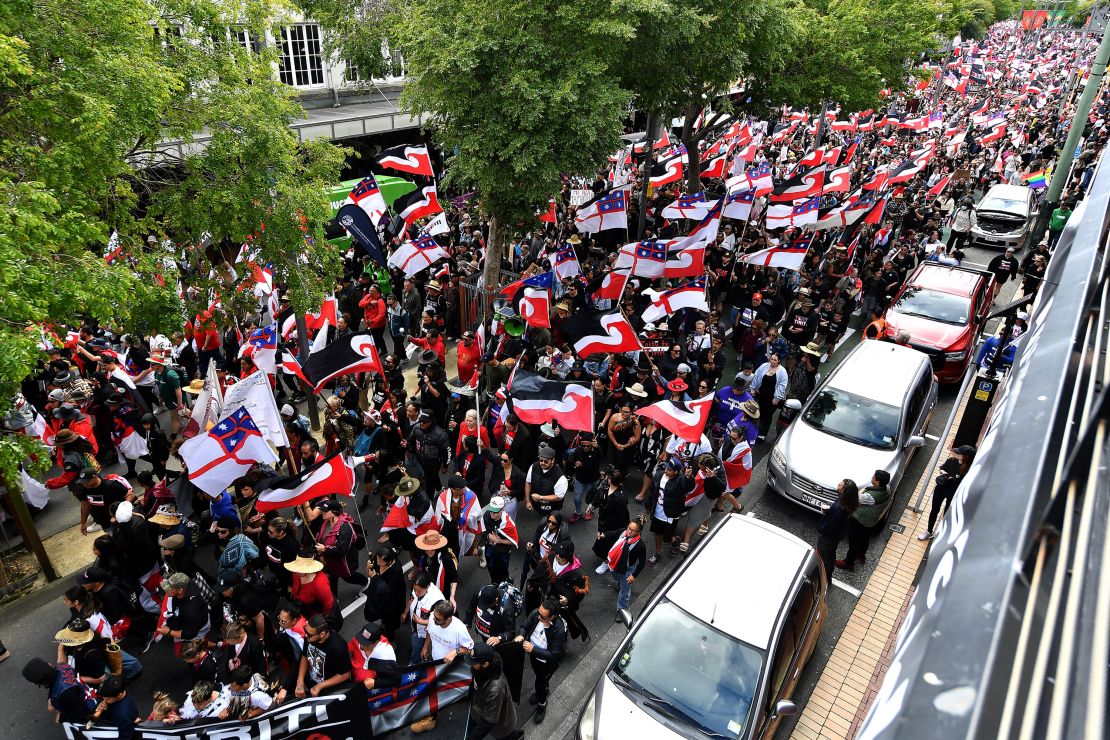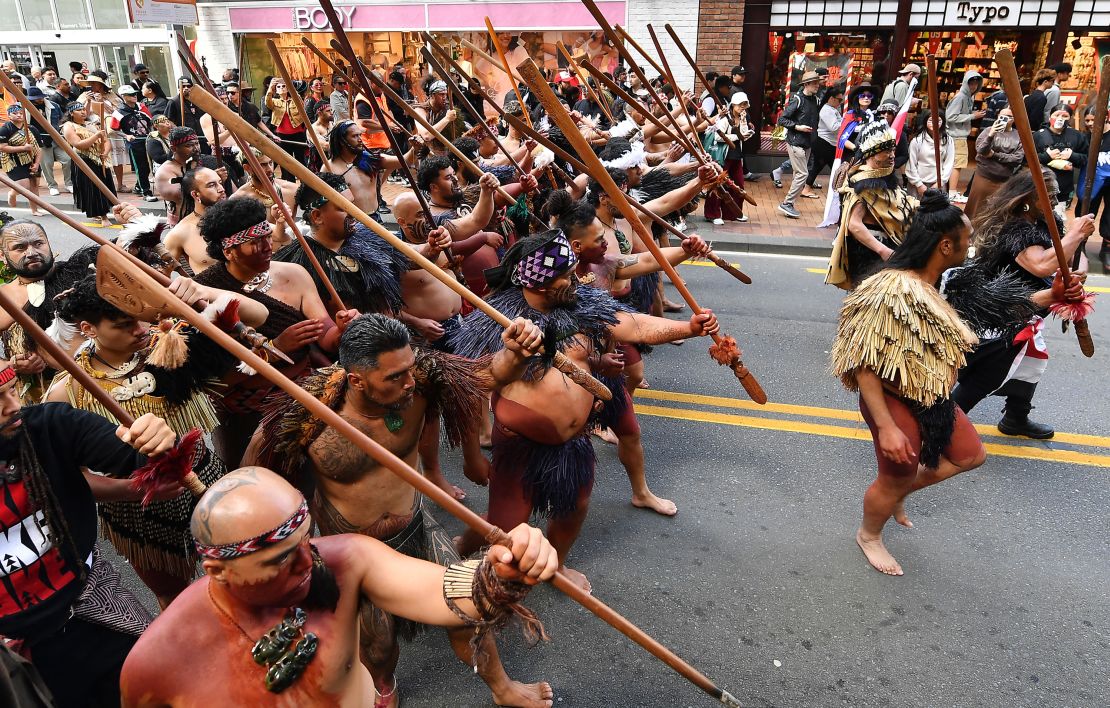Massive crowds march on New Zealand parliament protesting Māori bill. Here’s what to know
Vocabulary: 286, Words: 605
1Tens of thousands of people have marched on the New Zealand parliament in Wellington to protest against a bill that critics say strikes at the core of the country’s founding principles and dilutes the rights of Māori people.
2The Hīkoi mō te 3Tiriti march began nine days ago in New Zealand’s far north and crossed the length of the North Island in one of the country’s biggest protests in recent decades.
4The traditional peaceful Māori walk, or hīkoi, culminated outside parliament on Tuesday, where protesters implored lawmakers to reject the controversial Treaty Principles Bill that seeks to reinterpret the 184-year-old treaty between British colonizers and hundreds of Māori tribes.
5The legislation is not expected to pass as most parties have committed to voting it down, but its introduction has triggered political upheaval and reignited a debate on Indigenous rights in the country under the most right-wing government in years.
6Here’s what you need to know:
7Massive crowds marched through the New Zealand capital as part of the hīkoi, with people waving flags and signs, alongside members of the Māori community in traditional clothing.
8Police said about 42,000 people, a significant number in a country of about 5 million people, marched toward parliament to oppose the legislation.
9Those attending described the march as a “generational” moment. 10“Today is a show of kotahitanga (unity), solidarity and being one as a people and uphold our rights as Indigenous Māori,” marcher Tukukino Royal told Reuters.

11Protesters gathered outside parliament, known as the Beehive, as lawmakers discussed the controversial bill.
12Last week, parliament was briefly suspended after Māori lawmakers staged a haka to disrupt voting on the bill.
13New Zealand’s Treaty of Waitangi is a document signed by the colonial British regime and 500 Māori chiefs in 1840 that enshrines principles of co-governance between Indigenous and non-Indigenous New Zealanders.
14The treaty is considered one of the country’s founding documents and the interpretation of its clauses still guides legislation and policy today.
15Two versions of the text – in Māori, or Te Tiriti, and English – were signed but each contains differing language that has long sparked debate over how the treaty is defined and interpreted.

16Unlike the United States, New Zealand doesn’t have a written constitution. 17Instead, the treaty’s principles have been developed over the past 40 years by successive governments and courts.
18The agreement seeks to protect Māori interests, their role in decision-making and relationship with the British Crown. 19And courts have used the principles to redress Māori disenfranchisement and enact policies that seek to remedy social and economic disparities Māori face.
20The Treaty Principles Bill was introduced by David Seymour, leader of the right-wing ACT New Zealand Party, which is a junior coalition partner with the ruling National and New Zealand First parties.
21Seymour says he does not seek to change the text of the original treaty but argues its principles should be defined in law and should be applicable to all New Zealanders, not just Māori.
22Supporters of the bill say the ad hoc way in which the treaty has been interpreted over the years has given Māori special treatment.
23The bill, however, is widely opposed by politicians from both sides of the aisle and thousands of Indigenous and non-Indigenous New Zealanders, with critics saying it could undermine the rights of the Māori.
24Seymour was met with chants of “kill the bill, kill the bill” when he briefly walked out of parliament to meet the crowds on Tuesday, according to CNN affiliate Radio New Zealand.
25Hīkoi leader Eru Kapa-Kingi told the crowd “Māori nation has been born” today and that “Te Tiriti is forever,” RNZ reported.
from CNN